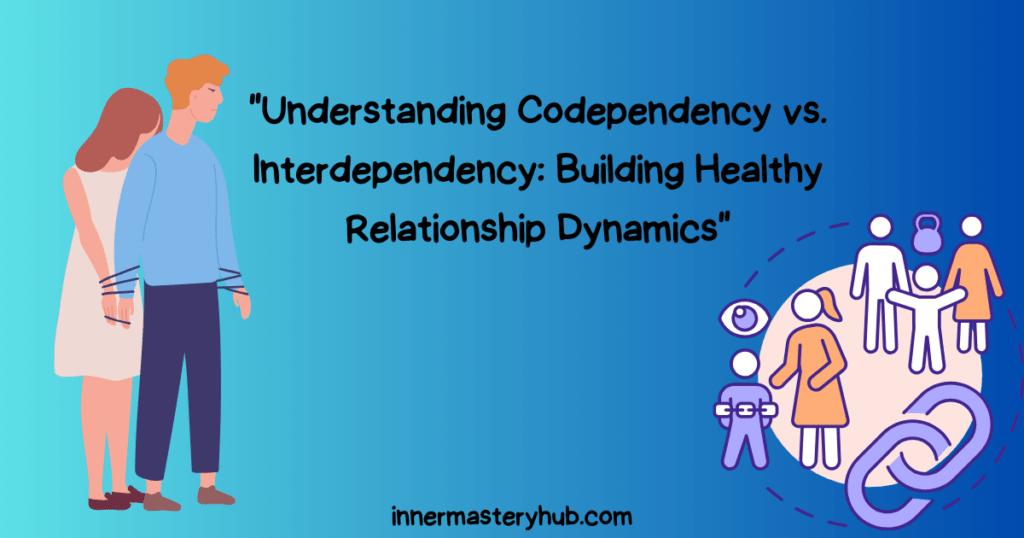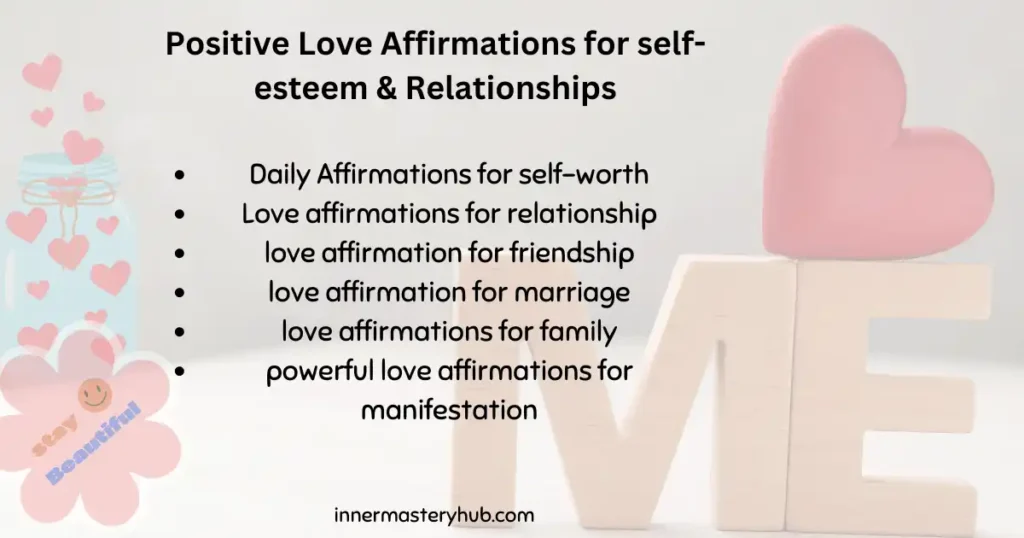12 Signs of Intellectual Intimacy is Your Secret love Language
Signs of Intellectual Intimacy
Signs of intellectual intimacy include engaging conversations that go beyond small talk, genuine curiosity about each other’s thoughts, and a sense of safety in expressing different opinions. You challenge and inspire one another mentally, enjoy exchanging ideas, and feel deeply understood. There’s mutual respect, active listening, and excitement as we explore new concepts together.

Many couples and friends feel close to you but still say, “Something is missing.” Minds do not meet at the depth when conversations revolve around chores, schedules, and small talk. That’s where boredom creeps in, attraction fades, and conflict drains your energy.
Daily life becomes a loop when partners stop learning from each other. Curiosity dries up, and misunderstandings arise when people do not compare ideas, values, and beliefs. Even active love languages, such as touch or gifts, cannot fill a mental gap for long. Studies tie intimacy and curiosity to better connection and satisfaction, so the cost of skipping mental connection can be real. When curiosity dies, relationships lose the fuel that builds trust, admiration, and desire.
Intellectual intimacy brings back the spark by joining minds. When partners share ideas, test beliefs, and stay open to learning, respect replaces defensiveness and disagreement becomes a catalyst for growth. This guide explains what intellectual intimacy is, shows you credible signs and benefits, and gives you simple habits to build it at home and in friendships.
What intellectual intimacy means (and why it matters)
When two people are intellectually connected, they feel comfortable and eager to exchange thoughts, opinions, and knowledge. People like asking questions, respectfully arguing, having lengthy conversations, and picking each other’s brains. Rather than serving as a replacement for emotional physical intimacy, psychologists and therapists present it as one of various forms of intimacy. Because it shows how the mind-to-mind connection supports each other, that placement is significant.
When partners listen, share, and show empathy, intellectual intimacy increases. According to studies on intimacy and curiosity, these traits are associated with higher trust, healthier relationships, and eventually even better sexual health.
The difference between intellectual intimacy and emotional or physical intimacy
While emotional closeness is based on shared sentiments and vulnerability, physical intimacy is centred on touch and sexual connection. Intellectual closeness is based on shared ideas and respected thought. All three feed off each other. Writers and researchers categorise intellectual intimacy into several forms and explain how effective talks build respect, which in turn builds trust and desire.
12 signs intellectual intimacy is your secret love language
1) You crave ideas more than small talk
When a conversation progresses from updates to ideas, you become excited. You ask “why” and “how” because reasons are essential to you. When someone connects facts, values, and outcomes, your attention becomes more focused. A companion who discusses a topic with you feels connected. A night of serious questioning beats a busy schedule. Intellectual closeness feels natural when a mind-to-mind encounter leaves you feeling energised rather than tired.
2) You admire curiosity over quick answers
You value a question that opens a path more than an answer that closes it. Curiosity indicates safety and growth to you. A companion who says, “Tell me more,” builds trust. Follow-up questions convey care, not distrust. Intellectual intimacy develops when both individuals value learning over winning. Your interest typically coincides with genuine curiosity.
3) You enjoy respectful debate
You see argument as a means for collaboration rather than a source of conflict. Clear points, honest enquiries, and fair descriptions are more important than scoring. Your tone remains calm since the goal is knowledge. Disagreement turns into a map of values and trade-offs. Intellectual intimacy improves when both people can say, “Here’s my point of view, and here’s what I might be missing.”
4) You value intellectual humility
You feel closer to those who admit their doubts. “I could be wrong,” suggests trust in you. Because you don’t have to defend every position, being open encourages you to think critically. You reciprocate with the same stance. Intellectual intimacy grows when both parties revise their opinions in light of new data. Respect comes with a willingness to revise.
5) You need shared thinking time on the calendar
You set aside time for discussions in the same manner that others do for workouts. A weekly walk or “question night” helps to settle your mind. Phones are kept away so that concentration may be maintained. A short prompt begins the flow. Intellectual connection grows when deep conversation becomes a habit rather than an uncommon occurrence.
6) You teach each other and enjoy the exchange
You enjoy occasions when one person shows a skill, technique, or story that the other has not seen before. Short teach-and-ask sessions keep things interesting. Your partner’s newfound awareness feels like a gift. Your own lesson feels more like a contribution than a performance. Intellectual intimacy develops when both roles, teacher and learner, rotate freely.
7) You care about values talk, not just decisions
You want to understand the “why” behind choices. Budgets, careers, and parenting plans only make sense if values are discussed. You listen for trade-offs and priorities. You offer your personal anchors without preaching. Intellectual closeness arises when value discussions reduce conflict later because both parties understand the logic underlying behaviour.
8) You feel safe sharing half-formed thoughts
You want to understand the “why” behind choices. Budgets, careers, and parenting plans only make sense if values are discussed. You listen for trade-offs and priorities. You offer your personal anchors without preaching. Intellectual closeness arises when value discussions reduce conflict later because both parties understand the logic underlying behaviour.
8) You feel comfortable discussing half-formed views.
You don’t need precise phrases to begin. Early drafts of ideas are welcome with the correct person. Gentle questions help mould your thoughts rather than shut them off. Before criticising, the other person mirrors your perspective. Intellectual closeness happens when rough ideas are taken genuinely rather than mocked, and investigation takes precedence over judgment.
9) You like planning and model-building together
You adore creating future scenarios and if-then plans. Calendars, savings pathways, and project roadmaps all feel like puzzles. Roles and dangers are identified without blame. Adjustments seem natural because both minds own the design. Intellectual intimacy emerges when strategy time is perceived as quality time rather than a job list.
10) You bond through shared media and debriefs
You use a film, article, thread, or podcast as a catalyst. The debrief is as important as the substance. You compare takeaways, values, and weaknesses. Short articles work effectively because they allow for focused discussion. Intellectual closeness flourishes in debriefs, where two minds work together to map meaning and apply insights to daily life.
11) You fight boredom with novelty and learning
You detect boredom early and address it with new stimuli. Museum hours, local lectures, new recipes, and day trips all serve as conversation starters. You do not seek thrills from novelty; rather, novelty acts as a conversation starter—intellectual closeness benefits when both people intentionally feed the shared mind garden.
12) You feel desire rise with respect for the mind
You find mental admiration appealing. A partner’s clarity, curiosity, and fairness are important to your desire. When minds connect, emotional safety grows, and physical closeness follows. Respectful conversation eliminates defensiveness and increases warmth. Intellectual closeness, for you, acts as a love language since thinking together feels like being loved.
Quick Checklist For Busy Weeks
- One 10-minute phone-free walk together.
- One “teach me” mini-lesson.
- One question that starts with “why” or “how.”
- One mirror-and-ask round on a tense topic.
- One new input (article, film, book) as a shared spark.
Pitfalls to Avoid
Debate without empathy. Point-scoring kills safety.
Topic monopoly. One partner’s lectures block shared learning.
Performative smarts. External status signals (degrees, titles) do not equal humility or curiosity.
Over-indexing on agreement. The goal is understanding, not uniformity.
Simple Script You Can Try Tonight
Step 1: Pick a “why” topic. Choose one question like “What value should guide our money choices this year?”
Step 2: Share, then mirror. Partner A talks for two minutes. Partner B mirrors: “I heard X, Y, Z. Did I get that?”
Step 3: Ask one curious question. “What shaped that view?”
Step 4: Swap roles.
Step 5: Note one update. Each says, “One way I see this differently now is…”
This screenplay draws on disclosure, empathy, and humility, the same building blocks that research has linked to intimacy and peaceful dispute resolution.

A Short Note on Love-Language Talk
Gary Chapman’s five love languages are popular. Less well-known approaches (such as intellectual or curiosity-based connections) are also mentioned in more recent publications and by doctors. If using that term makes it easier for you to request an intellectual connection, you can use it as a personal “love language.” Just keep in mind that there is more solid data supporting the benefits of intimacy in general than there is for any one love language.
Intellectual Intimacy Across Contexts
In romance. Long conversations, shared projects, and future planning help many people feel most loved. Some even identify as sapiosexual when the quality of talk drives attraction.
In friendships. Deep talks keep bonds strong despite time gaps. Counselors emphasize the importance of meaningful conversations and curiosity.
In the family. Open, age-appropriate debate teaches kids to reason and listen. Parents can model “I could be wrong” to build safe inquiry. Early research on intellectual humility supports this tone.
What Research Suggests
Curiosity builds closeness.
Experimental work shows that trait/state curiosity promotes greater interpersonal closeness during first meetings and structured disclosure tasks. In a 45-minute lab interaction, higher curiosity predicted stronger felt closeness and better interaction quality. (PMC)
Intimacy predicts sexual well-being.
Daily-life studies find temporal links between intimacy and sexuality: within-couple analyses show that days higher in intimacy tend to precede higher sexual desire/satisfaction and partnered sexual activity. (PMC)
Intellectual humility smooths conflict.
Across interpersonal contexts, people higher in intellectual humility show more constructive and fewer destructive conflict responses. Open-minded awareness of one’s fallibility relates to better conflict behavior and post-conflict positivity. (PMC)
In romantic relationships, IH relates to the quality of the relationship.
Emerging couple-focused research suggests that intellectual humility is associated with higher relationship satisfaction, stronger emotional bonds, and healthier conflict dynamics in romantic partners. (Article-in-press/early access.) (ScienceDirect)
Intimacy tracks marital satisfaction.
Survey studies across life-cycle stages consistently associate higher marital intimacy with higher marital satisfaction; newer regional samples replicate this pattern across genders and relationship durations. (Taylor & Francis Online)
Therapy research echoes the intimacy link.
Randomized and comparative reviews show established couple-therapy models (e.g., CBCT, EFT) improve relationship functioning—mechanisms include enhancing responsive communication and emotional/relational intimacy. Narrative syntheses across trials support intimacy-focused processes as active ingredients. (PMC)
Bonus: curiosity as a broader social engine.
Related lab and field studies indicate curious individuals experience richer daily social interactions and greater well-being, supporting the idea that curiosity fuels ongoing connection beyond initial meetings. (ScienceDirect)
Bottom line
Intellectual intimacy keeps a relationship mentally alive. Minds that meet tend to trust more, fight fairer, and desire longer. You do not need perfect alignment. You need curiosity, humility, and a simple structure that makes deeper talk feel safe. Start with one prompt, one mirror, and one question. Growth follows.
Frequently Asked Questions About Intellectual Intimacy
1) What is intellectual intimacy?
A safe and stimulating exchange of thoughts, opinions, and curiosities between people is known as intellectual intimacy. Partners politely confront one another, listen intently, and pose genuine questions. Mutual understanding, trust, and development are the results of it. As you spend time together today, it improves both physical and emotional intimacy, developing communication, admiration, and long-term relationship happiness.
2) How does intellectual intimacy differ from emotional intimacy?
Expressing thoughts and logic is the focus of intellectual intimacy, whereas expressing emotions and weaknesses is the focus of emotional intimacy. They both support one another. Careful discussion builds respect, which, in turn, supports emotional safety, which, in turn, promotes more in-depth and significant conversations. Through inquiry, learning, empathy, and humility, balanced relationships avoid boredom, minimise misunderstandings, and maintain attraction.
How does intellectual intimacy increase creativity and collaboration?
Intellectual closeness increases creativity, mutual respect, and collaboration. Learning together helps couples feel more appreciated, communicate more effectively, and solve difficulties more quickly. Goals are aligned, and values are revealed through shared thinking. By developing general intimacy, curiosity-driven interactions help resolve conflicts, lessen defensiveness, and eventually increase desire. Connected minds maintain the resilience of love.
4) What are the signs of intellectual intimacy?
Lively interest, polite argument, regular sharing of ideas, ease in expressing uncertainty, and feeling rejuvenated after lengthy discussions are all indicators. Partners exchange ideas, update beliefs, compare values, and work together to make plans. Trust is demonstrated by the freedom to explore unfinished ideas rather than only well-formed conclusions. Boredom declines, whereas admiration and cooperation gradually and distinctly increase with time.
5) How can couples build intellectual intimacy daily?
Couples can plan a weekly brainstorming session, share podcasts or articles, go on walks without phones, and engage in reflective listening. Brief routines are effective: one person explains an idea, while the other person mirrors and poses a genuine query. Together, they transform arguments into positive, fulfilling growth opportunities through new experiences, values check-ins, and intellectual humility, “I might be wrong.”
6) Can intellectual intimacy exist without shared interests?
Indeed. More critical than similar pastimes is a shared curiosity. To explore each other’s worlds with inquiries rather than lectures, partners might switch around their “hosted topics.” Understanding is the aim. Respect is developed, values are shown, and discussions are kept interesting, surprising, and fun when everyone follows the same procedure: switch up the topics, summarise each other’s points of view, and then ask one clarifying question.
7) Does intellectual intimacy improve sexual connection?
Yes. Respectful and stimulating conversations increase admiration and closeness, which in turn heightens desire. When partners feel understood and mentally engaged, emotional safety grows, reducing performance pressure and conflict spillover. Intellectual intimacy doesn’t replace physical intimacy; it strengthens the foundation that supports satisfying touch, affection, and long-term erotic interest, too.
8) What threatens intellectual intimacy?
Common threats include constant multitasking, device distraction, scorekeeping debates, topic monopolies, and contempt. Fatigue and unresolved resentments also shut curiosity down. Relationships thrive when partners protect attention, share airtime, and prioritise humility. Small rituals, such as ten-minute walks, media debriefs, and hosted topics—restore momentum and keep conversations respectful, novel, nourishing, and consistently meaningful.
9) How do you start intellectual intimacy with a reluctant partner?
Start small and low-stakes. Share a short article, ask one “why” question, and mirror their answer without rebuttal. Invite them to teach you something practical. Keep tone curious, not corrective. End by appreciating one new insight you gained. Consistency and gentleness build confidence, making deeper dialogue more welcome over time.
10) Is intellectual intimacy possible in friendships and families?
Absolutely. Friends can run mini-book swaps, documentary nights, or walk-and-talk routines. Families can host “teach me” dinners and model intellectual humility—admitting uncertainty, asking questions, revising views. These habits build trust, critical thinking, and empathy across generations, strengthening bonds even during disagreements, relocations, or busy seasons of life for everyone today.






